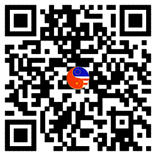| |
HOT NEW PRODUCTS
In Living Bag, we are always in search of new market trends; we have a special focus on recycled and natural materials.
We have been pioneers in bags made of recycled beverage bottles (PET), we are already leaders in recycled cotton items.
Today, we are happy to add several new materials and printing technology to our range:
-
Off set printing:
Off set printing enable us to print CMYK artwork without opening printing mould which is quite cost saving for our customers.This technology can be applied on normal PP non-woven material and Recycled paper cotton fabric, thus OPP lamination is not mandatory when you want to print CMYK artwork.So generally it saves the printing mould cost and printing cost,but the printing result still remains perfect.
-
Bamboo fibres:
Reaching up to 35 metres tall, bamboos are the largest members of the grass family; it regenerates after being cut just like a lawn without the need for replanting. There is no need for pesticides or fertilisers when growing bamboo and its water-use efficiency is twice that of other trees.
Most of the bamboo grown for the textile industry is organic; bamboo is thus the perfect material for high quality bags. The yield per acre is 10 times greater then the yield you get from cotton, what’s more it’s 100% biodegradable.
Bamboo fibres are coming from nature and going back to nature.
-
Tyvek:
Tyvek is a trademark from Dupont; it’s a non-woven product coming from PE fibres that are 0.5 to 10µm (compared to 75µm for a human hair). The non-directional fibres are first spun and then bounded together by heat and pressure, without binders. The final result is a very light fabric (much lighter than non-woven PP), highly resistant (nearly impossible to tear), waterproof, as printable as paper and 100% recyclable.
It’s using less oil-based material while having a long lifetime and being fully recyclable at the end.
-
Recycled paper reinforced with cotton yarns:
Paper is widely recycled around the world and there are many applications of it. You can still find shopping bags made of paper or recycled paper.
The main negative point with paper shopping bags is the one-time-use aspect.
By reinforcing recycled paper with a regular web of cotton yarns, we increase its resistance to pulling and we turn it from a disposable bag to a reusable bag, while keeping the biodegradability and recyclability of it.
With recycled paper bags reinforced with cotton yarns, we have the perfect green bag: recycled – reusable - recyclable
-
Recycled paper straw:
Again, paper straw bags or baskets are nothing new.
But when they are made of recycled paper, they become environmentally friendly shopping bags or baskets, and this makes the whole difference.
-
Jute:
Jute is mainly grown in India and Bangladesh, under a monsoon climate.
It is one of the most affordable natural fibres and is second only to cotton in amount produced and variety of uses of vegetable fibres.
Jute is a rain-fed crop with little need for fertilizer or pesticides.
Its fibre is 100% biodegradable and recyclable and thus environmentally friendly.
Jute has the reputation to be a resistant but rough fabric, it is now possible to stonewash it and make it become soft and nice to touch. Even the price of stonewashed jute fabric is relatively expensive, mainly due to its thickness.
-
Organic cotton:
Cotton covers 2.5% of the world's cultivated land yet uses 16% of the world's insecticides, more than any other single major crop.
Organic cotton is generally understood as cotton, from non genetically modified plants, that is to be grown without the use of any synthetic agricultural chemicals such as fertilizers or pesticides. Its production also promotes and enhances biodiversity and biological cycles.
Cotton has the reputation to be a natural product; it is partly true, unless it’s coming from organic crop.
View Hot & New Products here! |
To learn more about
how is cotton recycled?
click here |
| |
| |
To learn more about
how are pet bottles
recycled?
click here |
| |
| |
To learn more about
how is PP recycled?
click here |
| |
| |

http://www.living-bag.com/
|
|
|






